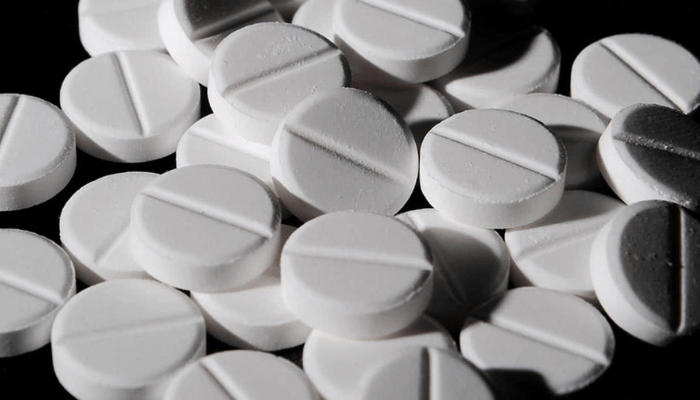[ad_1]
The emerging challenge is fuelled by the activities of organised crime syndicates that specialise in the production, use and trafficking of drugs, a report by the United Nations Office on Drugs and Crime (UNODC) and National Institute for Security Studies (NISS).
With a total of 16 methamphetamine labs seized by the Nigerian Drug Law Enforcement Agency (NDLEA) as of 2019, opioid production is aided by the importation of certain chemicals for the local pharmaceutical industry.
“The most important domestic drug market is that of synthetic opioids. The number of consumers is so large that the market is estimated to be worth more than $1 billion annually, likely marking Nigeria’s single highest-value drug market,” the report states.
Most opioid usage is reportedly connected to Tramadol, which comes in pill form. Although not illicit, the wide non-medical use in Nigeria is illegal.
Almost all the tramadol seized in Nigeria in containers between 2011 and 2019 was manufactured in South and Southeast Asia. Ports in Benin Republic and Togo, which often serve as conduits for goods destined for Nigeria, also seize large volumes of the drug.
Following the import and production ban of codeine cough syrup in Nigeria in 2018, it is likely that supplies are being diverted from neighbouring countries, the report said.
Prices of tramadol in Nigeria rose five-fold between 2017 and 2021. Moreover, Nigeria remains a hub in the transnational cocaine and heroin trade, with cocaine coming from Latin America using Nigeria and neighbouring countries as a transit hub also a matter of concern. Most cocaine couriered into Nigeria today comes from São Paolo (Brazil) through Addis Ababa (Ethiopia) to Cotonou (Benin Republic) or Lagos (Nigeria).
While Nigeria has a system in place to limit the distribution of controlled medicines to licensed pharmacists, it appears to be widely disregarded. As one group of academics observed
Much of the cannabis produced is consumed locally, while most of the methamphetamine produced seems to be exported.
A prisoner interviewed by UNODC for the report explaining the details of his role as a recruiter of labour for a cannabis plantation said he recruited dozens of boys from his community who were transported by bus to work for a year on cannabis fields in another state.
The boys were paid N120,000 naira for one year’s work after their living costs had been deducted. Some of the boys used these funds to buy cannabis to sell in the city.
In this way, part of the distribution network proceeded organically from the cultivation operation.
One survey of communities in Bayelsa State found that “the typical cultivator was a wealthy or a rich man with a strong network and connections with government officials.”
One cultivator interviewed in prison by UNODC described a 50-member association of farmers who democratically elected officers to represent their common interests, including protection from law enforcement.
The chairman of this group was said to be a person of considerable social and financial influence.
The cultivator interviewed claimed to net N2 million (about $5,000) per year.
Citing the NDLEA, the report shows that cannabis sold for between N40,000 and N50,000 naira for a 50-kilogram bag in 2015 and N25,000 for a 25-kilogram bag in 2016.
Although there has been considerable seasonal variation, with dry season prices rising to N80, 000 per bag.
On the low end, this is about $100 for 50 kilograms, or one-fifth of one US cent per gram, suggesting a low-quality, low-investment bulk product.
The relatively cheap product can generate significant profits for the people who work in the market.
Distributors reported purchasing large volumes of cannabis and reselling them for two or three times the purchase price. One female prisoner, who bought from source and sold to urban retailers, reported getting a loan for this purpose from a registered microfinance bank in Nigeria.
[ad_2]
Source link



